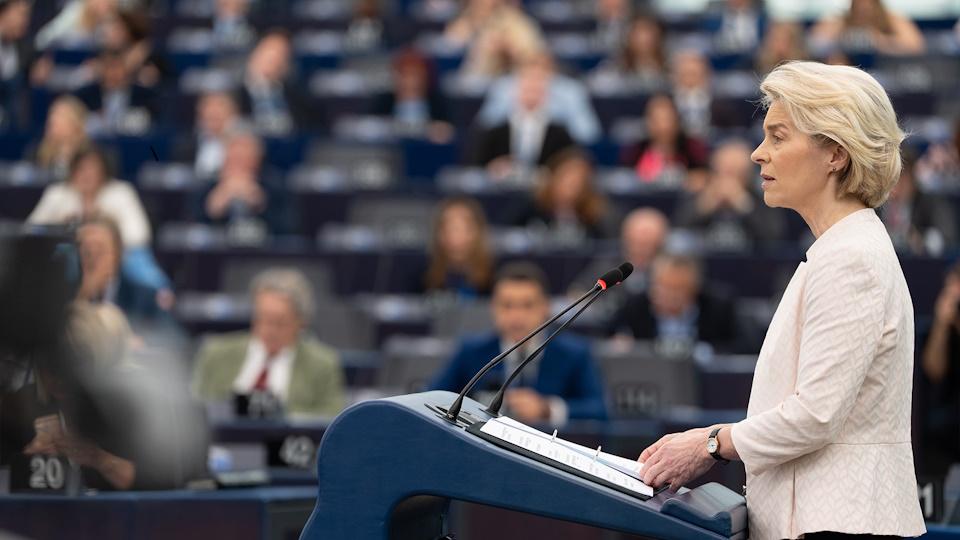Re-elected von der Leyen pledges EU measures for biotech

Ursula von der Leyen has been re-elected as president of the European Commission following a secret ballot in the European Parliament and, among the pledges made during her speech before the vote, were big plans for the biotech and artificial intelligence sectors.
Among promises to stick to climate targets, launch common defence projects, strengthen the EU's borders, continue support for Ukraine, and end the bloodshed in Gaza was a proposal for a new European Biotech Act in 2025 that will lay out a framework for supporting the life sciences sector.
The aim of the act will be to simplify the regulations governing biotech companies and projects, viewed as an impediment to investment in the EU. It will also improve access to financing for start-ups, with von der Leyen remarking that innovative European companies should not have to look to the US or Asia to finance growth – and will make it easier to move and scale up discoveries from research to market.
Alongside that was a commitment to improving access to cheap, sustainable and secure energy supplies and raw materials to help all industries, including biotech, reach net-zero objectives. And already announced by the European Commission is an EU biotech hub, due to start operations before the end of this year, that will be tasked with helping biotech companies better understand existing regulations.
The pledges were welcomed by EuropaBio, an industry organisation representing biotech companies.
"Biotechnology is rightfully recognised by President von der Leyen as central to Europe's future," said Dr Claire Skentelbery, EuropaBio's Director General. "As a critical technology where the EU already has significant scientific and economic strength, we look forward to strong progress and delivery towards the EU ambitions of competitiveness and resilience."
Boosting access to capital
Other proposals include measures to make it easier for commercial banks, investors and venture capital firms to finance fast-growing companies, and a European Savings and Investments Union that would tackle the EU's fragmented capital markets and make it easier for ordinary investors to back innovative projects.
There will also be an expansion of the EU's venture arm, the European Innovation Council, and von der Leyen also highlighted various "frontier technologies" that will benefit from a step up in investment, including genomics, supercomputing, quantum computing, and the Internet of Things.
"It's extremely encouraging to see competitiveness identified as the next Commission's main priority for Europe," said Clark Parsons, chief executive of the European Start-up Network, in a LinkedIn post.
He added that the ESN and its members are "eager and ready to see real progress made" on the Saving and Investment Union, which he believes will be a key factor in helping Europe catch up with the US and China.
He added, however, that "besides much-needed capital, Europe's start-ups need fast access to new markets, which means we have to enable start-up roaming, legal passports, call it what you will. Setting up 27 different companies for one 'single market' is not working."
AI in the spotlight
Three initiatives relating to AI were highlighted, including improving access to the computing power needed for the technology with the creation of AI Factories, designed to give start-ups access to supercomputers and recognising that computing costs are a big barrier for smaller companies trying to enter the market.
Alongside that is a plan for an AI Research Council to pool the EU's resources and expertise in this area, which would operate in much the same way that CERN brings nuclear research under one roof, and a new AI strategy to "boost new industrial uses of AI and to improve the delivery of a variety of public services, such as healthcare."
Members of the European Parliament (MEPs) backed von der Leyen's bid for another five-year term with 401 votes in her favour and 284 against in the 720-member ballot.













